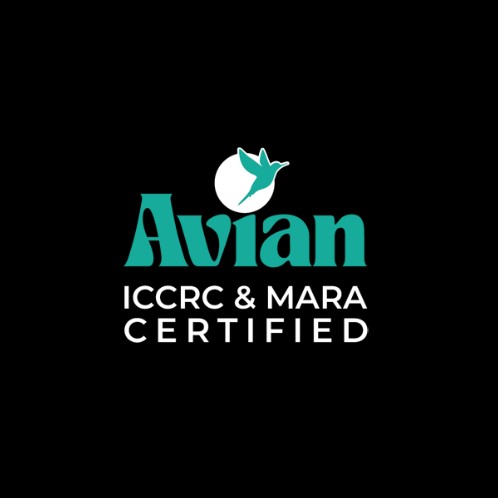Applying for a work permit in the Czech Work Permit can be an exciting step toward building a career abroad. However, navigating the process can be tricky, and even minor mistakes can lead to delays or outright rejection. Understanding common pitfalls and preparing carefully is key to a smooth application. Here’s a breakdown of the mistakes most applicants make, and how you can avoid them.
- Missing or Incomplete Documentation
One of the most frequent reasons work permit applications are delayed or denied is missing or incomplete documentation. The Czech authorities require a specific set of documents to process work permits, including:
- A valid passport
- A job offer or contract from a Czech employer
- Proof of qualifications
- Proof of accommodation
- Medical and criminal background certificates in some cases
What this really means is that you must ensure each document is current, correctly translated (if necessary), and certified as required. A simple missing signature or outdated certificate can set your application back weeks or even months.
Tip: Double-check the official Czech Ministry of Interior guidelines before submitting your documents, and keep copies of everything you send.
- Incorrect Visa Type Selection
Not all work visas are created equal. The Czech Republic offers different types of work permits, such as the Employee Card, Blue Card, and seasonal work permits. Choosing the wrong visa type can invalidate your application.
For instance, the Blue Card is designed for highly skilled professionals, while the Employee Card is more general. Applying for the wrong permit can result in outright rejection, and switching to the correct one later can be a cumbersome process.
Tip: Carefully review eligibility criteria for each visa type and consult with your employer or a legal advisor to make sure you’re applying for the right one.
- Underestimating Processing Time
Work permit applications take time. Many applicants make the mistake of assuming that processing will happen within a few days or weeks. In reality, the process can take several weeks, depending on your nationality, the type of work permit, and how quickly you submit correct documentation.
Expect delays during peak periods, such as before the summer season when many employers hire foreign workers. Rushing or submitting incomplete applications only compounds the delay.
Tip: Start your application process well in advance and plan your travel accordingly. Being patient and organized is better than submitting hurried documents.
- Failing to Provide Accurate Job Details
Your employer’s job description, contract, and salary details are crucial for approval. Inaccuracies, vague descriptions, or inconsistencies can raise red flags with Czech authorities. A mismatch between your qualifications and the job description is a common reason for denial.
Tip: Make sure the job title, responsibilities, and qualifications listed in your contract match the actual position and your credentials. If in doubt, ask your employer to provide a detailed, formal contract aligned with Czech regulations.
- Ignoring Language Requirements
While you may not need to be fluent in Czech to obtain a work permit, ignoring language requirements can create problems in both the application process and your day-to-day life in the country. Some permits or professions require a basic understanding of Czech or English, especially if your work involves direct communication with clients or public authorities.
Tip: Learn basic Czech phrases and ensure you understand the application instructions. Demonstrating effort to integrate linguistically can also make a positive impression on authorities.
- Overlooking Legal and Health Obligations
Czech law requires foreign workers to comply with specific legal and health obligations. For instance, some applicants must undergo medical examinations to confirm they are fit to work. Failing to submit health certificates or ignoring legal obligations like paying health insurance can result in rejection.
Tip: Familiarize yourself with health, legal, and tax obligations before applying. Many embassies and official websites provide clear checklists, which can save you from unnecessary stress.
- Relying on Outdated Information
Immigration rules and work permit regulations are subject to change. Some applicants make the mistake of relying on outdated advice or old articles they find online. Policies regarding required documents, application fees, and processing times may have been updated, and following old guidelines can jeopardize your application.
Tip: Always consult official government sources or authorized consultants. Companies like Avian Global offer guidance, but you should cross-check any advice with official regulations to ensure accuracy.
- Neglecting to Check Employer Eligibility
Another common mistake is not verifying that the employer is legally eligible to hire foreign workers. Czech authorities only approve work permits for jobs offered by registered and compliant employers. If your employer is not authorized, your application will be denied regardless of your qualifications.
Tip: Confirm that your employer has the proper licenses and has successfully hired foreign workers in the past. This verification step is crucial before committing to a contract.
- Poor Attention to Detail in the Application Form
Even seemingly minor errors, such as incorrect dates, misspelled names, or inconsistent personal details, can lead to delays or rejection. Czech authorities take accuracy seriously, and any inconsistency may require additional verification, prolonging the process.
Tip: Review every line of your application carefully. Have a trusted person or professional check your form for errors before submission.
- Failing to Maintain Communication
After submitting your application, some applicants fail to follow up or respond promptly to requests for additional information. Czech authorities may contact you or your employer for clarification. Ignoring these requests can stall or terminate your application.
Tip: Monitor your email and phone messages closely after submission. Respond to inquiries quickly and provide the requested documents in the correct format.
Conclusion
Applying for a Czech work permit requires careful attention, thorough documentation, and a good understanding of the legal requirements. Avoiding common mistakes, like submitting incomplete documents, choosing the wrong visa type, or ignoring legal obligations, can significantly improve your chances of approval.
Preparation and diligence are your best tools. Take the time to double-check your forms, confirm your employer’s eligibility, and ensure your documents are complete and accurate. By staying organized and informed, you can navigate the process with confidence and start your journey toward working and living in the Czech Republic.
Remember, even small errors can have significant consequences, so it’s worth taking the extra effort to get everything right the first time. With the right preparation, your Czech work permit application can be a smooth and successful step toward your international career.


